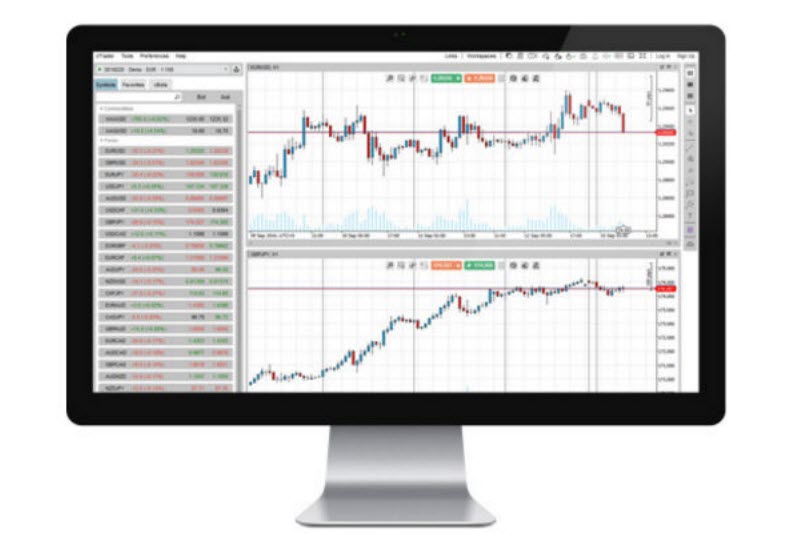In the intricate and dynamic realm of foreign exchange trading, forex brokers play a quintessential role. For seasoned and novices traders, understanding the functions, trading platforms, and criteria for selecting a forex broker is paramount. This article elucidates the pivotal role of forex brokers and offers guidance on making an informed choice.
Forex Brokers: The Conduits of Currency Trading
What are Forex Brokers?
Forex brokers provide traders access to platforms for buying and selling foreign currencies. They act as intermediaries between the retail forex trader and the interbank forex market. In exchange for this service, they charge a commission on trades or earn through a bid-ask spread.
The Vital Functions They Perform
Forex brokers wear multiple hats. They provide traders with access to currency pairs, leverage for trading on margin, trading platforms, and often educational resources for understanding forex markets. Additionally, they may offer market analysis and trading tools to aid in decision-making.
Delving into Trading Platforms

MetaTrader 4 (MT4)
MT4 reigns as one of the most popular forex trading platforms. With its user-friendly interface, it is especially favourable for beginners. MT4 boasts a plethora of features, including charting tools, indicators, automated trading capabilities through Expert Advisors (EAs), and a customizable interface.
MetaTrader 5 (MT5)
As the successor to MT4, MT5 offers more features and tools. It supports more order types, has a greater number of indicators, and facilitates trading in additional markets such as stocks and commodities. For advanced traders, MT5’s enhanced capabilities might be more appealing.
cTrader
cTrader is renowned for its intuitive and uncluttered interface. It is particularly favorable for traders focused on forex and CFD trading. With advanced charting tools, automation features, and Level II pricing, it caters to both novice and experienced traders.
Proprietary Trading Platforms
Some brokers develop their own trading platforms tailored to their unique features. These proprietary platforms may provide specialized tools, research features, or a distinctive interface. However, the learning curve may be steeper if transitioning from a popular platform like MT4 or MT5.
Charting a Path: How to Choose a Forex Broker
Regulatory Compliance
Ensure that a reputable financial authority such as the FCA regulates the broker. Regulatory compliance not only indicates legitimacy but also provides a layer of protection to traders through adherence to standards that safeguard trader’s interests.
Trading Costs and Fees
Use a website such as ForexBrokersOnline to compare and scrutinize the fee structure, including spreads, commissions, and overnight financing costs of the forex broker you are considering opening and account with. Opt for a broker that offers a transparent and competitive cost structure. However, be cautious of extremely low fees as this may be at the expense of service quality.
Range of Currency Pairs
Evaluate the range of currency pairs offered. If you intend to trade major pairs, most brokers will suffice. However, if your focus is on exotic or minor pairs, ensure the broker provides access to these markets.
Trading Platform Compatibility
As discussed earlier, the trading platform is your gateway to the forex market. Choose a broker that offers a platform you are comfortable with or are keen to learn. Ensure it encompasses the tools and features that align with your trading style.
Customer Service
Prompt and effective customer support can be invaluable, particularly in the fast-paced forex market. Choose a broker that provides robust customer service, preferably with multiple channels of communication.
Treading with Prudence: A Balancing Act
In the world of forex trading, prudence is the watchword. Selecting a forex broker is a decision that can significantly influence your trading experience and outcomes. It is a delicate balance between costs, platform features, market access, and security.
Assessing Your Trading Needs
Before settling on a broker, a clear assessment of your trading needs and objectives is vital. Are you a high-volume trader, or do you intend to make only a few trades? Is your focus on major currency pairs, or are you interested in exploring a diverse array of markets? The answers to these questions will guide your broker selection.
The Importance of Due Diligence
A careful vetting process is crucial. Beyond reviewing the broker’s website, engage in independent research. Look for reviews and feedback from other traders. Scrutinize any regulatory records for potential red flags.
The Significance of a Demo Account
Most brokers offer demo accounts, which can be an invaluable resource. Utilize this feature to get a feel for the trading platform and assess whether it aligns with your preferences and trading style.
Navigating Promotional Offers
Brokers may entice new customers with promotional offers such as bonuses or reduced trading costs. While these offers can be beneficial, it is important not to let them overshadow other critical factors in your decision-making process.
This article was last updated on: May 11, 2025
